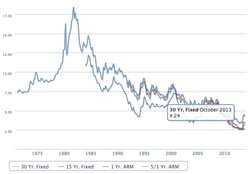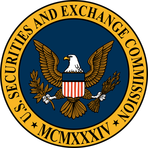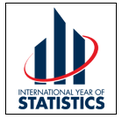
How nice would it be to have the peace of mind that would come with 100% ownership of your home? We are not talking about ownership where the bank still has your mortgage, but true ownership. No more monthly budget line item for House Payment. Let's take a look at the Pros and Cons of paying off your loan early.
Pros:
Income Stream - does it make more sense for you to have that additional income stream and spend it on other expense requirements. What is the benefit for you eliminating the payment? Or, just cut that particulate expense item and save or invest that additional income. It is also a possibility that a highly stressful job could be eliminated for a lower income, pleasurable pursuit, position that provides greater satisfaction and enjoyment. What percentage of your current salary is necessary to make the house payment.
Pros:
Income Stream - does it make more sense for you to have that additional income stream and spend it on other expense requirements. What is the benefit for you eliminating the payment? Or, just cut that particulate expense item and save or invest that additional income. It is also a possibility that a highly stressful job could be eliminated for a lower income, pleasurable pursuit, position that provides greater satisfaction and enjoyment. What percentage of your current salary is necessary to make the house payment.

(click to enlarge)
Interest Rate Risk - if you take the money that you would have spent on paying your mortgage, and invest it elsewhere, can you make the same amount or greater. If your mortgage is 4.5%, is the return on the investment you make with the money you no longer pay for that expense, a better investment than the one you are paying off. What are the inherent risks of fluctuations for that alternative investment. So, if you pay off the mortgage, you essentially have a return of 4.5%.
Interest Savings - interest payments on a mortgage can equate to tens of thousands of dollars. Paying off your mortgage will free up the money that would have gone to pay the interest alone. You are freeing up future cash flows to be spent elsewhere. Lost will be the mortgage interest tax deduction, but the after-tax cost savings of the debt may still be substantial. Also, the closer you get to paying of the debt, more of the payment goes to principal and the tax benefits diminish over time.
Interest Savings - interest payments on a mortgage can equate to tens of thousands of dollars. Paying off your mortgage will free up the money that would have gone to pay the interest alone. You are freeing up future cash flows to be spent elsewhere. Lost will be the mortgage interest tax deduction, but the after-tax cost savings of the debt may still be substantial. Also, the closer you get to paying of the debt, more of the payment goes to principal and the tax benefits diminish over time.

S&P vs. 30yr Treasury (click to enlarge)
Peace of Mind - do it and get it over with. No more worries about this portion of your debt load. We suggest you use funds from taxable accounts. Avoid using funds from IRAs or 401Ks. These will be taxable as income in the year they are withdrawn reducing any savings rate you may have realized on interest. Using taxable account withdrawals could lower your total tax bill assuming that you do not have to pay significant capital gains related to the assets you utilized.

Cons:
Underfunded Retirement - focus on funding your retirement first. If you have not contributed the maximum allowable, do that first. Is your retirement fully funded.
Analyze Your Debt Structure - if you do have the extra cash, focus on the debt structure of the other obligations you have. Pay off the higher interest rates first. Concentrate your efforts on the non-deductible debt such as credit-card debt first.
Available Reserves - if you do pay of your mortgage, your strategy must include analysis of required cash reserves. Ensure you have accounted for money needed to fund emergencies, general expenses and all discretionary spending. You will still be required to pay property taxes, insurance and those unknown monthly maintenance items. Make sure you have adequate cash reserves in your strategy.
Opportunity Costs - While paying off the mortgage is risk-free in the sense that there's no volatility in this investment, you do risk losing out on potential gains you might have made by investing the money elsewhere. Compare the mortgage interest rate to the after-tax rate of return on an investment such as a high-quality, tax-free municipal bond with a similar term to determine whether investing the funds makes better sense than paying off the mortgage.
Underfunded Retirement - focus on funding your retirement first. If you have not contributed the maximum allowable, do that first. Is your retirement fully funded.
Analyze Your Debt Structure - if you do have the extra cash, focus on the debt structure of the other obligations you have. Pay off the higher interest rates first. Concentrate your efforts on the non-deductible debt such as credit-card debt first.
Available Reserves - if you do pay of your mortgage, your strategy must include analysis of required cash reserves. Ensure you have accounted for money needed to fund emergencies, general expenses and all discretionary spending. You will still be required to pay property taxes, insurance and those unknown monthly maintenance items. Make sure you have adequate cash reserves in your strategy.
Opportunity Costs - While paying off the mortgage is risk-free in the sense that there's no volatility in this investment, you do risk losing out on potential gains you might have made by investing the money elsewhere. Compare the mortgage interest rate to the after-tax rate of return on an investment such as a high-quality, tax-free municipal bond with a similar term to determine whether investing the funds makes better sense than paying off the mortgage.

Diversification of Investments - If you do pay off your home, that could represent a substantial amount of your total portfolio in one area. One of the best ways to try and increase opportunities for growth is to hold a variety of investments in different asset classes. Tying up significant funds in your home equity reduces those opportunities—and even if your house appreciates in value, you would have to either sell it or refinance it to tap into that equity.
Contemplating a Possible Move - If you are thinking about moving, you might as well carry the existing mortgage until then.
Other Options and Considerations - If your mortgage has no prepayment penalty, an alternative to paying it off entirely before you retire is paying down the principal. You can do this by making an extra principal payment each month or by sending in a partial lump sum. Interest is a killer, this approach can save a significant amount of interest and pay off the loan much quicker while preserving liquidity and diversification. Are you getting the best rate available? Keep an eye on interest rates, refinancing with a lower interest rate may work nicely into your strategy.
The strategy that is best for you will depend on your goals and financial plan, preferences and your individual circumstances. Do watch, and beware of developments in the economy. Keep an eye on interest rates monthly, if not daily. What would you do, if you could? Sua Sponte.
Bradford C. Bruner for Sua Sponte Wealth Management
Contemplating a Possible Move - If you are thinking about moving, you might as well carry the existing mortgage until then.
Other Options and Considerations - If your mortgage has no prepayment penalty, an alternative to paying it off entirely before you retire is paying down the principal. You can do this by making an extra principal payment each month or by sending in a partial lump sum. Interest is a killer, this approach can save a significant amount of interest and pay off the loan much quicker while preserving liquidity and diversification. Are you getting the best rate available? Keep an eye on interest rates, refinancing with a lower interest rate may work nicely into your strategy.
The strategy that is best for you will depend on your goals and financial plan, preferences and your individual circumstances. Do watch, and beware of developments in the economy. Keep an eye on interest rates monthly, if not daily. What would you do, if you could? Sua Sponte.
Bradford C. Bruner for Sua Sponte Wealth Management

















































